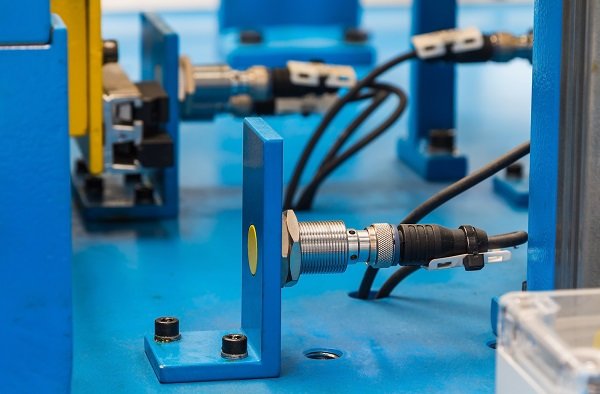Industrial Sensors: The Backbone of Smart Manufacturing

Industrial automation is revolutionizing the way products are made, and at the core of this transformation are industrial sensors. These sensors provide critical real-time data that enables manufacturers to optimize efficiency, enhance product quality, and reduce operational risks. From monitoring machine performance to ensuring safety compliance, industrial sensors are the key to a more intelligent and efficient production process.
Was sind Industrial Sensors?
Industrial sensors are devices designed to detect, measure, and transmit data about environmental conditions, machine performance, and process efficiency. These sensors play a critical role in automating operations by providing feedback that helps machines make intelligent decisions.
They come in various types, including:
- Annäherungssensoren – Detect the presence or absence of objects without physical contact.
- Temperature sensors – Monitor and regulate temperatures in industrial processes.
- Pressure sensors – Measure gas and liquid pressure to ensure safe operations.
- Optical sensors – Used for quality control and defect detection.
- Vibration sensors – Identify mechanical issues before they lead to equipment failure.
Why Industrial Sensors Are Essential
- Improved Operational Efficiency
- By collecting real-time data, industrial sensors allow manufacturers to optimize workflows and reduce waste.
- Predictive Maintenance & Downtime Reduction
- Sensors identify issues before they escalate, preventing costly machine breakdowns and unplanned downtime.
- Enhanced Safety & Compliance
- In high-risk environments, such as chemical plants and heavy manufacturing, sensors detect hazardous conditions and trigger automatic safety measures.
- Higher Product Quality
- Automated quality control through industrial sensors ensures that products meet exact standards, reducing defects and returns.
- Seamless Integration with Industry 4.0
- Modern sensors connect with AI and IoT platforms, enabling smart factories with autonomous decision-making capabilities.
Applications of Industrial Sensors in Smart Manufacturing
1. Robotics & Automation
Industrial robots rely on sensors for movement control, object detection, and precision assembly. Industrial sensors help robots operate safely in dynamic environments, improving productivity.
2. Smart Packaging & Logistics
Sensors optimize packaging operations by measuring weight, detecting defects, and ensuring consistency. They also track shipments and monitor storage conditions, reducing waste and spoilage.
3. Energy & Resource Management
Factories use industrial sensors to monitor energy consumption and optimize resource use, contributing to cost savings and sustainability efforts.
4. Process Control in Heavy Industries
In oil & gas, mining, and steel production, sensors ensure safety and efficiency by monitoring temperatures, pressures, and chemical compositions in real time.
The Future of Industrial Sensors
The role of industrial sensors will only expand as automation technology advances. The integration of AI, machine learning, and IoT will allow sensors to provide deeper insights, leading to even greater efficiency and reliability in industrial processes.
Additionally, the miniaturization of sensor technology and advancements in wireless communication will make industrial sensors more versatile and cost-effective, allowing their adoption across industries of all sizes.

Schlussfolgerung
As the industrial world embraces automation, industrial sensors stand at the forefront of this transformation. Their ability to provide real-time data, enhance precision, and improve safety makes them indispensable in modern manufacturing. With continuous advancements in sensor technology, the future of industrial automation looks brighter than ever. For businesses aiming to stay competitive, investing in industrial sensors is not just an option—it’s a necessity.
